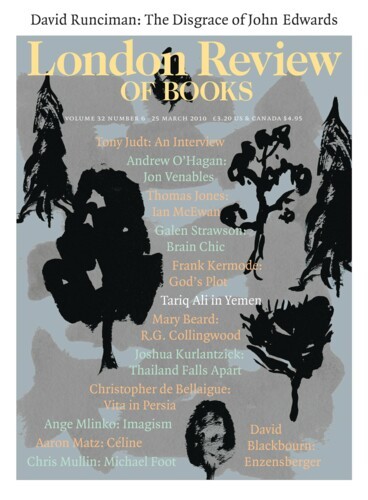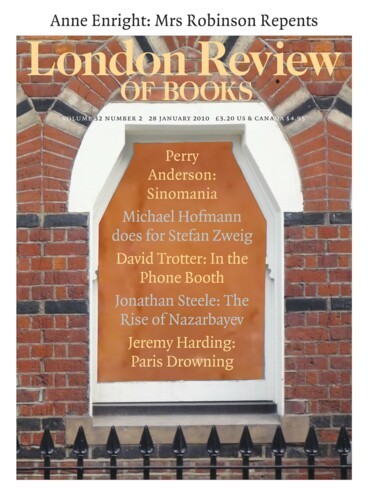Eliot had a sort of physiology of poetry. In his lecture ‘The Three Voices of Poetry’ he agreed with Gottfried Benn when he spoke of an imagined meeting between a ‘creative germ’ and language. The poet ‘cannot know what words he wants until he has found the words’. The nascent poem is a burden, relief follows its birth: the poet ‘may experience a moment of exhaustion, of appeasement, of absolution, and of something very near annihilation’. Here is a remarkable mixture of satisfactions, physical, spiritual, close to mortal, and we need to remind ourselves that the metaphor is obstetric, shadowing a dangerous childbirth, a cause of shuddering. Eliot believed, with Housman, that there was a connection between illness and creativity, as once there was held to be in melancholia.
So Eliot was sensitive to certain manifestations of the uncanny, and to terrors that might well cause shuddering. We have now to ask a more difficult question: why did those lines of In Memoriam affect Eliot so exceptionally, move him to use ‘shudder’ as a laudatory critical term?





